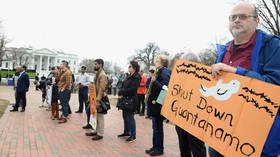Black & Asian communities trust family more than govt and media for Covid-19 vax information amid lagging BAME jab uptake in UK
New research commissioned by the British Red Cross has revealed that black, Asian and minority ethnic groups (BAME) are more likely to trust vaccine information given to them by their families than the government or the media.
A survey published on Friday by the British Red Cross shows that family conversations could play an important role in increasing Covid-19 jab uptake among vaccine-hesitant BAME communities.
The research says that 81 percent of BAME people polled said they trust information about coronavirus jabs given to them by family members, which is higher than the percentage that said they trust information from the government (66 percent) and mainstream media (50 percent).
The charity says that vaccine scepticism actually varies among ethnic groups, with Indian (85 percent) and Chinese (89 percent) communities having a similar level of confidence in the jab to that of the British average (87 percent).
Outright rejection of the vaccine was far highest among respondents from black African, black Caribbean or Pakistani communities. People from a black Caribbean background are most likely to be sceptical, with 46 percent saying they won’t take the vaccine or are not sure.
Also on rt.com Vaccine hesitancy among UK minorities forces Covid-19 inoculation centre to close early 3 days last weekThe study also showed that 82 percent of BAME respondents who considered themselves ‘vaccine hesitant’ could be persuaded to have the jab if their fears, ranging from side effects, speed of production and ingredients, are alleviated.
The survey’s publication comes at a time when the UK’s vaccination programme appears to be progressing well but has been marred by frequent reports about vaccine hesitancy in non-white communities.
On Thursday, Queen Elizabeth II spoke out against vaccine hesitancy, urging individuals to “think about other people rather than themselves.”
Like this story? Share it with a friend!













